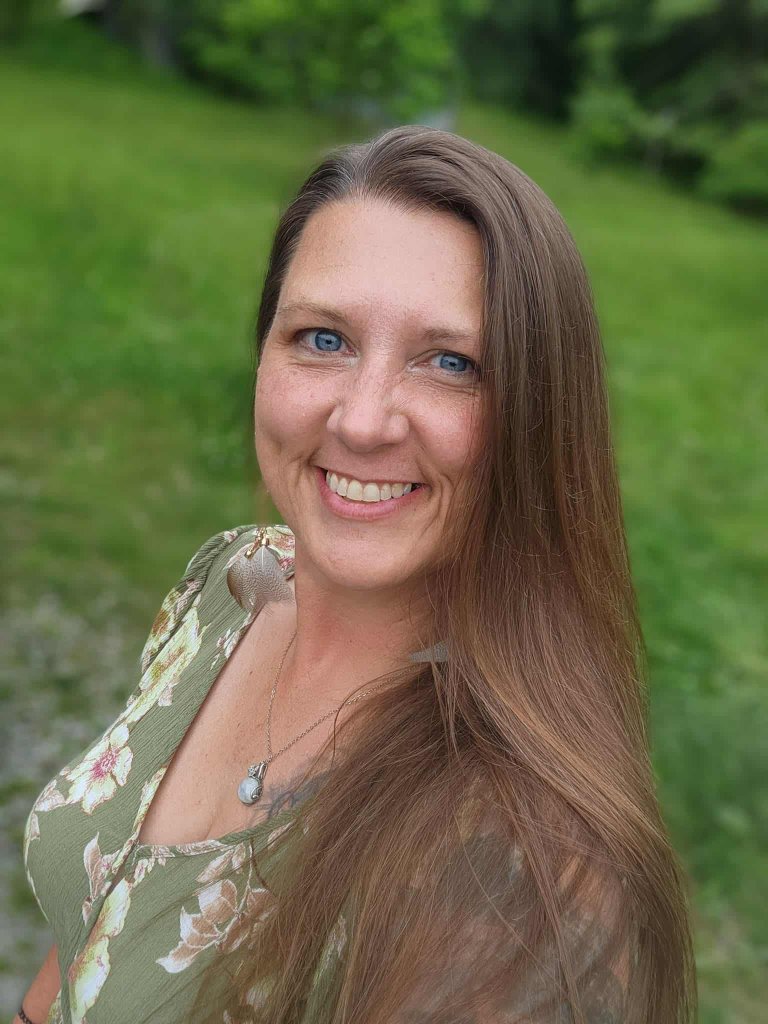What is your name and occupation?
My name is Nikki Hollen, and I work on the production floor at Corhart, which is a glass refractory.
What were you doing before your career with Corhart?
I was a retail manager. I have a business degree, but unfortunately, I wasn’t in the right place in my life to be able to leave West Virginia to take advantage of opportunities to maximize the value of that degree. I would often find local jobs that were a good fit for my degree, but I never had enough experience to get hired.
Can you share how you came to work at Corhart?
I was a young mother with bills to pay when I saw a job posting for Corhart, which is considered an elite job in my area. Initially, I was encouraging someone else to apply, but eventually decided I would give it a shot. The factory was conveniently located close to my kids’ school, and I wanted to work for a company that could offer benefits like help with retirement. I submitted my application at 11:59 PM on the night of the posting cutoff, and luckily, I was called for an interview.
When I first applied, I had intentions of working my way into the HR department, but I decided I wanted to remain a production employee, which is what I am doing now.
Can you tell me a little bit about your job?
To put it in layman’s terms, we build what is called a “batch” from which blocks are formed. I work with all the raw materials used to create batches of a specific chemical makeup. An engineer develops the recipe for the batch, and they pass it to me. I combine raw materials together in the correct percentages and weights needed for certain types of blocks. There can be multiple different batches on any given day, depending on what we’re producing at the time.
We have quite a few processes in our department, and I’m qualified for about half of them. I’m also a dry mixeer, which means I run a mixer. I use the mixer to build a batch and add liquids sometimes, or whatever is needed for that batch’s recipe. Once I operate the mix according to the recipe, I discharge it and send it on to the next department, where they form the block.
Is Corhart a union jobsite?
Yes, and I am a Steelworkers Union member. Since there is no union for glass refractories, the Steelworkers Union is the closest fit for what we do.
Unfortunately, I have to pick up my kids from school around the same time as our union meetings, so it’s difficult for me to attend. However, I make it a point to show up to meetings during the summer when they aren’t in school.
The union is great, as well as the company itself. I really can’t complain. I have been treated well.
Do you have advice for other women who want to build a career like yours?
Know that you can do it. I had absolutely no production experience whatsoever when I walked through the door at Corhart. It was difficult, but I paid attention and made it a point to get along with everyone. I was fortunate enough to have great guys on my team who trained me on the equipment.
I believe there are six women working on the floor with me right now, and we’ve had at least three or four women retire in the last couple of years. There have also been a couple of ladies who have moved up in the company, so there were more women on the floor when I first started.
How is safety integrated into your job?
We have a company-run safety team, and I believe there are three people on that team. There is also a union-run safety team. So, safety is a big thing for us.
The people on those safety teams either have a degree in a related field or maybe worked their way into that position. I know one of the folks on the union side started in production, but he’s been there for around twenty years and took over the lead role for that team. He understands our job from the workers’ point of view, and he observes all the different jobs and talks to us about how to make work as safe as possible.
One of the women in the company-run safety team also started on the floor, and she was an EMT as well. She’s certified to teach CPR and first aid, so she is the one who provides that training to our workers.
Is there anything about your job that might surprise people?
There’s a physical aspect to this job, and employees need to safely lift at least 50 pounds. Just to give you an example, today I shoveled 1,850 pounds of material as well as another thirty bags of material weighing 55 pounds each, which is another 1,650 pounds. That is the physicality of what I did throughout my workday. I’ve done upwards of 6,000 pounds in one day.
Corhart is different from most production plants because our work is not done on an assembly line like a lot of other factories. We have different departments performing different functions before sending the materials or blocks off to the next department. My department is where everything is mixed before moving to where everything is formed and placed into kilns. Our kilns are similar to what you’d use to fire pottery, and that is where the blocks are hardened.
Next, the hardened blocks are sent to another department where large machinery finishes them. I started in the finishing department running machinery that is larger than my living room. There is a magnetized table, and you program certain dimensions for the blocks before they are ground down with diamond pads to the correct size and shape. The blocks go through a quality check to catch any chips, cracks, or other defects. From there, blocks go to the assembly department, where they become part of a furnace. Pictures are taken of the finished product and sent to the customer. It is then sent to the shipping department, where it is packaged up.
People are always surprised to learn we make ceramic blocks that line glass furnaces all over the world. The glass blocks line furnaces, which are used to make fiberglass. That fiberglass is then used in flat screen TVs, wine bottles, eyeglasses, and even the fiberglass used in windmill blades, like ones in the mountains around Elkins, WV, for example.
A lot of people are shocked to discover the raw chrome we use in our formulas is actually very green and not the silver shiny chrome you’re used to seeing on car accessories or the trim on your refrigerator. It is actually a very bright green, and I work with it every day.
Another interesting fact is that most of our engineers come from Alfred University in New York. It is the closest university that has a ceramic engineering program, so they are recruited to our company as soon as they graduate.
Is there anything you’re excited about outside of work?
I’m a holistic healer and shaman and have invested as much time and money into developing those skills as it would take to earn a master’s degree. I own a business in the town of Buckhannon, WV, where I have a storefront and do energy healing. My store is called Essence of Energy, LLC. We are on Facebook, but we have mostly relied on word of mouth so far. I’m not big on social media, but my daughter helps with our Facebook and TikTok accounts.
I love supporting local businesses and have invited local vendors to sell their products in my store. I currently have thirty vendors, and eleven of them have natural products that are sourced in West Virginia or the surrounding areas. Of course, there are a lot of medicinal herbs and plants that don’t grow in West Virginia, so some ingredients in the products have to be outsourced, but we try to keep them as locally sourced as possible. One of the vendors is a lady from Elkins who is my plant medicine guru, and she actually forages and harvests as many native plants as she can in the mountains of Tucker and Randolph Counties for her plant medicines. She makes herbal teas, tinctures, and that type of thing. Other vendors produce things like body butters made with goat milk, aromatherapy products, and more.
Some things we sell could almost be called crafts, but they’re more than that. For example, one woman creates pendants with wildflower seeds. The idea is to plant the seeds wherever you go as an act of “guerrilla gardening,” which is a form of gardening that involves planting flowers or growing food in public or private spaces without the owner’s permission. For example, you could plant wildflowers in the cracked pavement of a parking lot.
One vendor creates wonderful fairy lights, garden lights, bird feeders, and bird waterers out of Mason jars, old pots and pans, and things like that. Another woman grows flowers, which she presses and puts into window panes to create decorative hangings. She’s also a landscape photographer who puts her work on canvases. So, there’s a variety of things for sale in my store. It’s only been open a few months so far, but it’s been very well received.
We have an Expo coming up this summer at The Outpost and Event Center in Buckhannon, WV. Last year, there were thirty vendors participating from all over the state who offered some type of natural medicine, and we are looking forward to seeing what this year brings. I invite everyone to stop by.
Interview conducted, transcribed, and written by Marlynda Arnett, Program Innovation Leader for West Virginia Women Work.

